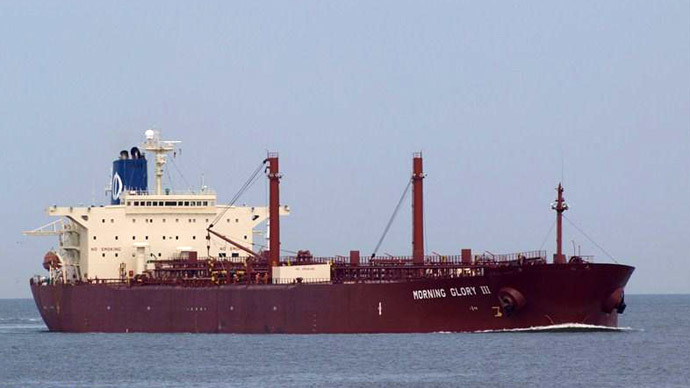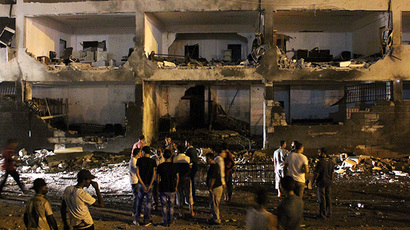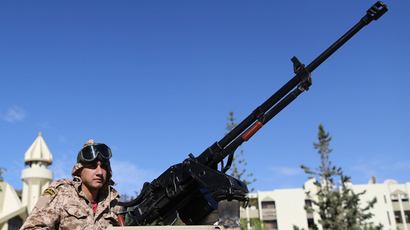Libyan govt launches military operation against oil trafficking rebels

Libya is poised for conflict as the government has ordered a military operation against rebel militias who have loaded $38 million worth of oil onto a foreign tanker in Es Sider. Rebels earlier said they would treat any attack as “a declaration of war.”
"The force will be set up to liberate the ports and end the blockage," parliamentary spokesman Omar Hmeidan told Reuters after the legislative assembly voted to begin an operation within a week.
The rebels say they have deployed a counter-force of fend off government fighters.
"We have sent land units to defend Cyrenaica to the west of Sirte...and we also have boats patrolling regional waters," Essam al-Jahani, a senior militia chief, told Reuters.
Led by former anti-Gaddafi war commander Ibrahim Jathran, armed fighters have taken control of at least three major oil exporting ports in the poorer east of the country since August last year. Initially a campaign to obtain a greater share of the oil wealth, it has grown into a war for independence, with separatist leaders proposing that the country should be split in three, according to tribal boundaries.
The blockade of export routes has shrunk Libya’s exports from 1.4 million barrels per day a year ago, to just 230,000 barrels per day.
But the conflict came to a head when the 37,000-tonne Morning Glory, a tanker flying North Korean colors, docked in Es Sider on Saturday, to receive a cargo of oil directly from the rebels. The ship, formerly known as Gulf Glory, is thought to belong to Saudi owners.
The government threatened to “bomb” the tanker if it did not depart immediately, but the rebels loaded it with oil, saying any attempts to “harm” the ship would be perceived as the start of an open conflict.
The market value of the oil inside the tanker exceeds $38 million, though it is not clear how much the militias will actually receive from the unauthorized sale.
The state-run National Oil Corp – which was singled out as a target by the rebels from the beginning, due to perceived corruption – has said that it will sue any party which accepts the cargo in international court.
Over the weekend, the Libyan Navy also sent four warships and 13 modified fishing boats to Es Sider, and officials say they have secured all exits from the port, with Morning Glory remaining marooned in the departure area.
In return, rebels have loaded armed all-terrain vehicles onto tugboats that will sail with the tanker as it moves towards international waters.
The US, whose private companies own 41 percent of Waha Oil, the extractor of the crude inside the tanker, has taken the side of the government in the dispute.
“This action is counter to law and amounts to theft from the Libyan people,” said State Department spokeswoman Jen Psaki.
“Any oil sales without authorisation from these parties places purchasers at risk of exposure to civil liability, penalties and other possible sanctions in multiple jurisdictions.”
The current oil crisis is symptomatic of the difficulties the government in Tripoli has had in reining in separatist militias since the overthrow of Muammar Gaddafi in 2011. The country is not only riven on tribal and ethnic lines, but has struggled with an intensifying radical Muslim presence.
But the control of oil is crucial to establishing authority over Libya, as it provides more than 90 percent of the foreign income of the country, which has the biggest reserves in the whole of Africa.














